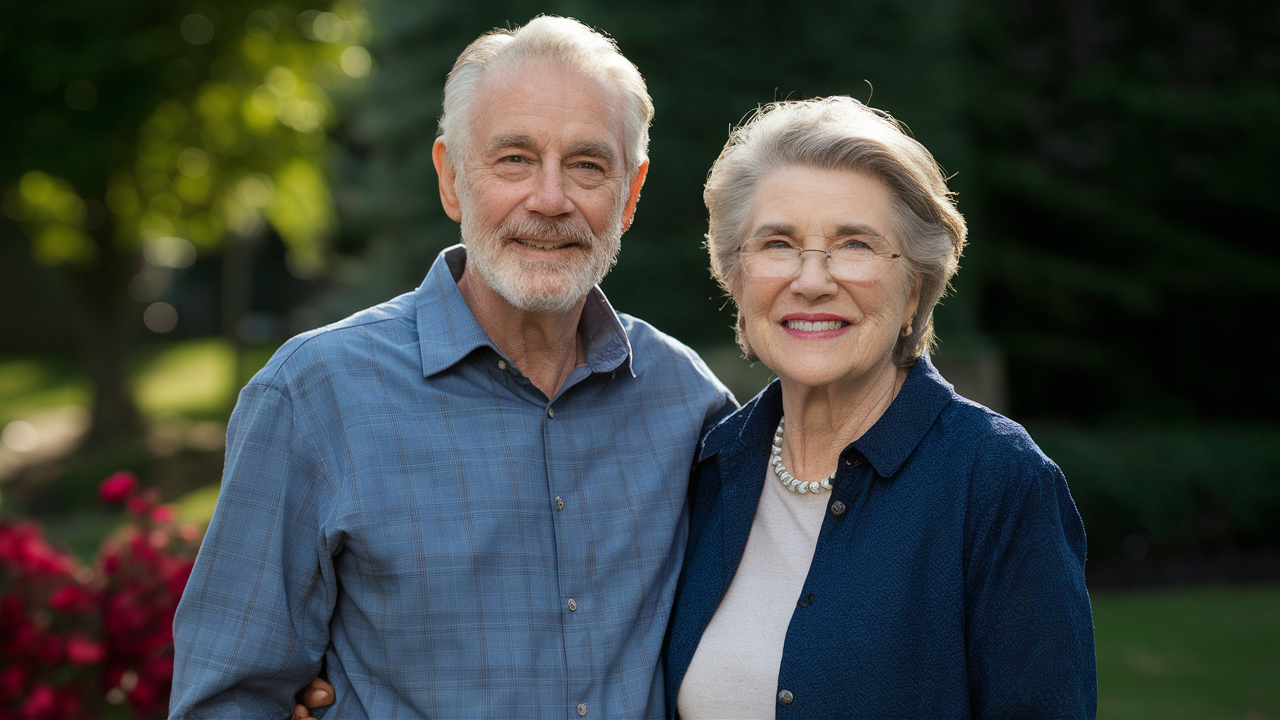-
Posted on: 24 Jul 2024

-
The question of which spouse typically dies first is a somber one, but understanding the factors involved can offer valuable insights into life expectancy, gender differences, and the realities of aging within a marriage. While individual circumstances vary greatly, statistical trends provide a general overview. In most cases, the husband tends to die before the wife. This isn't a simple matter of fate, but rather a complex interplay of biological, social, and lifestyle factors.
Gender and Life Expectancy: A Key Factor
One of the most significant contributors to this trend is the inherent difference in life expectancy between men and women. Globally, women consistently outlive men by several years. This disparity is rooted in a combination of genetic predispositions, hormonal influences, and lifestyle choices.
Biological Differences
Biologically, women have certain advantages that contribute to their longer lifespans. For example, estrogen is believed to offer some protection against cardiovascular disease, a leading cause of death for both sexes. Furthermore, men tend to have higher levels of testosterone, which, while beneficial in other aspects, may increase the risk of certain health issues.
Lifestyle Choices and Risk-Taking Behavior
Historically and statistically, men are more likely to engage in risky behaviors such as smoking, excessive alcohol consumption, and dangerous occupations. These behaviors directly impact their health and contribute to higher mortality rates, especially in younger and middle-aged men. Changes are happening over time in certain demographics, but the historical gap remains significant when considering overall population data and longer life expectancies.
Age Differences in Marriage
Another factor influencing which spouse dies first is the age difference between partners. Traditionally, men have often married women younger than themselves. This age gap, even if small, means the husband is already at a greater risk of mortality simply due to being older.
The Impact of Age Gap
Consider a scenario where a man marries a woman who is, on average, three years younger. All other factors being equal, the man is statistically more likely to die first because he is already three years further along in his lifespan. This age gap, combined with the inherent differences in life expectancy between genders, further reinforces the likelihood of the husband predeceasing his wife.
Health and Lifestyle Factors
Beyond gender and age, a multitude of health and lifestyle factors contribute to individual life expectancy and, consequently, which spouse dies first.
Diet and Exercise
A balanced diet rich in fruits, vegetables, and whole grains, combined with regular physical activity, is crucial for maintaining good health and extending lifespan. Couples who prioritize healthy eating and exercise habits are more likely to enjoy longer lives together.
Smoking and Alcohol Consumption
As mentioned earlier, smoking and excessive alcohol consumption are major risk factors for various diseases, including cancer, heart disease, and liver disease. These habits significantly shorten lifespan and contribute to higher mortality rates. Couples who quit smoking and moderate their alcohol intake can significantly improve their chances of living longer, healthier lives together.
Access to Healthcare
Access to quality healthcare is essential for preventing and managing chronic diseases. Regular checkups, screenings, and timely treatment can help detect health problems early and improve outcomes. Couples who have access to comprehensive healthcare are better equipped to address health issues and extend their lifespans.
Stress Levels and Mental Health
Chronic stress and poor mental health can negatively impact physical health and shorten lifespan. Managing stress through relaxation techniques, mindfulness practices, and social support is crucial for maintaining overall well-being. Couples who prioritize their mental health and support each other through challenging times are more likely to experience greater longevity.
The Widowhood Effect
The "widowhood effect" is a phenomenon where the surviving spouse experiences an increased risk of mortality following the death of their partner. This effect is thought to be caused by a combination of factors, including grief, loneliness, stress, and changes in lifestyle.
Psychological Impact of Loss
The death of a spouse is a profound loss that can have a devastating impact on the surviving partner's mental and emotional well-being. Grief, sadness, and loneliness can lead to depression, anxiety, and other mental health problems, which can, in turn, negatively affect physical health.
Social Isolation and Loneliness
The loss of a spouse can lead to social isolation and loneliness, particularly if the surviving partner was heavily reliant on their spouse for companionship and support. Social isolation has been linked to a higher risk of mortality, as it can weaken the immune system and increase the risk of chronic diseases.
Changes in Lifestyle
Following the death of a spouse, the surviving partner may experience changes in lifestyle that can negatively impact their health. For example, they may lose interest in cooking and eating healthy meals, become less physically active, or neglect their healthcare needs. These changes can contribute to a decline in physical health and increase the risk of mortality.
Changing Trends and Future Projections
While the general trend suggests that husbands tend to die before their wives, it's important to acknowledge that societal and lifestyle changes are influencing these trends. As women increasingly engage in careers and adopt lifestyles historically associated with men, some of the health disparities may narrow. For instance, higher rates of female smoking and alcohol consumption could potentially lead to increased mortality among women in the future.
The Impact of Equalizing Lifestyles
As gender roles continue to evolve and women increasingly participate in traditionally male-dominated fields, it's possible that the gap in life expectancy between men and women will shrink. However, this is a complex issue with numerous factors at play, and long-term data is needed to fully assess the impact of these changes.
Advancements in Healthcare
Advancements in healthcare are constantly pushing the boundaries of human lifespan. Improved treatments for diseases like cancer and heart disease are helping people live longer, healthier lives. These advancements benefit both men and women and contribute to overall increases in life expectancy.
Coping with Loss and Grief
Regardless of which spouse dies first, the experience of loss is incredibly painful and challenging. It's important for individuals and couples to be prepared for the possibility of loss and to have strategies in place for coping with grief and adapting to life as a widow or widower.
Seeking Support
Seeking support from family, friends, or support groups can be invaluable during the grieving process. Talking about your feelings, sharing memories of your loved one, and receiving emotional support from others can help you cope with the pain and begin to heal.
Maintaining Physical and Mental Health
Maintaining good physical and mental health is crucial for coping with loss. Eating a healthy diet, getting regular exercise, and prioritizing sleep can help boost your mood and energy levels. Engaging in activities that you enjoy and finding ways to connect with others can also help combat loneliness and depression.
Planning for the Future
Planning for the future can provide a sense of purpose and control during a difficult time. This may involve setting financial goals, making arrangements for your living situation, or exploring new hobbies and interests. Taking proactive steps to shape your future can help you move forward with hope and resilience.
Conclusion
While statistics suggest that husbands typically die before their wives, individual circumstances and lifestyle choices play a significant role in determining lifespan. Understanding the factors that contribute to longevity, such as gender differences, age disparities, health habits, and access to healthcare, can empower couples to make informed decisions that promote their well-being. Ultimately, prioritizing a healthy lifestyle, seeking support during challenging times, and planning for the future can help couples navigate the complexities of life and loss with grace and resilience.











